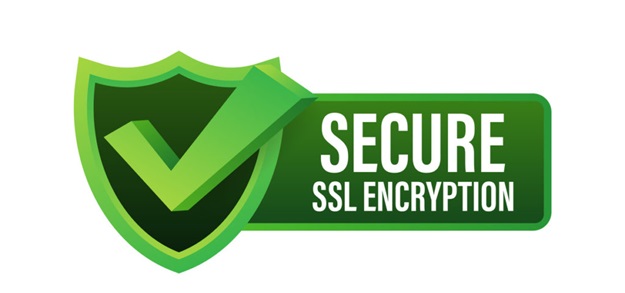Every website in today’s age collects information from its users in the form of newsletters, contact forms, online sales, or subscriptions. Moreover, in case of online transactions taking place on your website, the last thing you’d want is to have the personal information or credit card information of your customers stolen. This is where an SSL certificate comes into action.
In this context, we will take a look at how an SSL certificate works to ensure the proper protection of your site.
How does an SSL certificate work to safeguard your site?
With the increase in data security breaches and cyberattacks in today’s date, an SSL certificate is of primary importance to secure every website, whether it is an e-commerce store, a personal website, or a governmental site. In this article, we will take a close look at what an SSL certificate really is, how it works, and what its benefits are.
What is SSL, and how does it work?

Secure Socket Layer is a security protocol that seeks to create an encrypted connection between a web server and a web browser. It ensures a secure connection and prohibits third parties from being able to access or modify the transferred information.
To obtain an SSL certificate, website owners need to purchase it from a Certificate Authority. The CA will then use the Certificate Signing Request to create a certificate. This CSR is an encrypted text that gets generated on the server wherein the certificate is going to be installed. It consists of information such as the domain name of the website, the public key to encrypt the data that has been sent, and the relevant contact details.
Everytime the browser of the visitor tries to access the website, the web server will evidently send a copy of the certificate for the purpose of verification. In the event of this process being successful, an SSL secured connection gets established. The website will then use an URL that begins with HTTPS, rather than HTTP, and depending upon the browser, a padlock icon will also be displayed in the address bar.
When does your website need an SSL certificate?
The installation of an SSL certificate should always be a top priority for every website owner out there. It doesn’t matter whether it collects data or not; it is always important to provide a worry-free browsing experience to all of the website visitors.
What are the common types of websites that require SSL certification?
The common types of websites requiring an SSL certification include:
E-commerce websites
A secure data transfer is especially vital for online stores handling payments, and this is where an SSL certificate is of paramount importance. SSL certificates protect unauthorized parties from illegally intercepting information that they can collect from your websites and customers, such as passwords, usernames, or payment details, among other things.
Popular internet browsers such as Chrome and Safari send a warning to visitors to not submit any personal info on any HTTP website. This further leads customers to worry that they’re at risk of their credit card details being stolen, making them leave the online stores invariably.
Moreover , since PCI requirements have made it mandatory to encrypt the transmission of cardholders across open networks, having an SSL certificate has become all the more necessary for every website that collects money online. As an alternative, accepting online payments may also be accomplished via the use of a third-party SSL accredited payment processor like PayPal.
Personal websites
A portfolio website, for instance, is as vulnerable as an e-commerce website. Whenever a prospective client fills out a contact form, SSL seeks to encrypt the submitted information so that hackers cannot gain any form of access to it.
Static websites
Because hackers may target anybody who views HTTP sites, the material on a static website should still be safeguarded even when it does not collect or take money.
Governmental websites
Every public service organization must safeguard its consumers’ privacy. Protecting the data input forms is necessary to stop hackers from altering or prying into private and sensitive data.
What if your website doesn’t have an SSL certificate?
With the advancement of technology, security attacks have also increased. According to recent research, the average cost of a data breach in 2021 reached $4.24 million. However, having an SSL certificate can ensure the prevention and minimisation of cyber attacks significantly.
Besides cyberattacks leading to financial losses, they may also jeopardize the privacy of millions of users and affect the reputation of a business.
Moreover, a website that receives visitors from the European Union needs to comply with the General Data Protection Regulation.
It is a law that was established to protect the privacy and personal information of EU citizens online. Those who fail to do so are at risk of fines of up to €20 million.
What makes an SSL certificate important?
Having an SSL certificate is not only about ensuring the protection of sensitive information. Some of the reasons that make obtaining an SSL certificate all the more important are as follows:
Improvement in security
Websites without an SSL certificate use HTTP, a text based protocol, which means it is easier to intercept and decrypt. However, HTTPS makes use of cryptogenic keys to encrypt data and information, thereby offering more complex security and making it difficult for potential hackers to illegally intercept the exchange of data.
Hence, the HTTPS protocol protects your website against every form of digital threat such as Man In The Middle attacks. These attacks take place when some unauthorised individual intercepts the traffic between the client’s browser and the website’s server.
Even if an attacker somehow intercepts your connection, having an SSL certificate ensures that they are unable to decrypt the information that has been passed on.
Strengthening SEO
Another advantage of installing an SSL certificate is to boost your SEO strategy. Google and every other search engine have made website security an essential factor when it comes to determining the rankings of different web pages.
Google Chrome and other search engines highlight any non-SSL page with a “Not Secure” warning notice, as they all want to provide consumers with a safe and secure online surfing experience.
Thus, having an SSL certificate improves your site’s position on search engine results pages.
Final Words
In addition to providing an extra layer of protection against every form of malicious intent, SSL is also important when it comes to strengthening the SEO performance of any given website. However, an SSL certificate is only the first line of defense against hackers and attackers. Additional security measures are still important to protect your website and its visitors.
